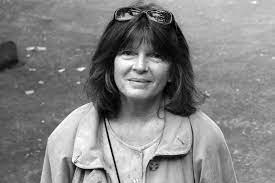
This year we passed the 120th anniversary of Rainer Maria Rilke’s first letter to Franz Xaver Kappus. Franz sounds like a lot of young poets today. “Dear Established Poet,” he writes. “Would you please read my poems and tell me if I’m horrible at this?”
If you read Letters to a Young Poet today (there are ten letters in all), you’ll see that the first letter contains the most advice about poetry per se. The rest? Yes. Here and there. But mostly a philosophy on life and insight into the way Rilke thinks.
One thing the first letter establishes quickly is that Rilke falls in with those poets who believe you should write for yourself as opposed to for markets (for others, if you will):
“You ask whether your verses are any good. You ask me. You have asked others before this. You send them to magazines. You compare them with other poems, and you are upset when certain editors reject your work. Now (since you have said you want my advice) I beg you to stop doing that sort of thing. You are looking outside, and that is what you should most avoid right now. No one can advise or help you–no one.”
Sound advice, if you’re one of these poets in a hurry. Poetry writing does not reward the hare. It’s all about the tortoise, the writer willing to let his poetry steep, age, meld its flavors. Look again later and revise. Cut to the bone. Repeat step one. On and on. But does youth have patience for such practice? And, in this day and age, when “youth” lasts well into the fifties, does anyone? Back to Rilke:
“There is only one thing you should do. Go into yourself. Find out the reason that commands you to write; see whether it has spread its roots into the very depths of your heart; confess to yourself whether you would have to die if you were forbidden to write. This most of all: ask yourself in the most silent hour of your night: must I write? Dig into yourself for a deep answer. And if this answer rings out in assent, if you meet this solemn question with a strong, simple “I must,” then build your life in accordance with this necessity; your whole life, even into its humblest and most indifferent hour, must become a sign and witness to this impulse.”
As we now know that Kappus met no success as a poet, we can only assume that, once he went into himself, he learned that he “mustn’t.” Or, shall we say, he felt “he must,” but learned otherwise once he escaped military school and listened to the Sirens of a bourgeois, materialistic life of comfort.
“Then come close to Nature. Then, as if no one had ever tried before, try to say what you see and feel and love and lose. Don’t write love poems; avoid those forms that are too facile and ordinary: they are the hardest to work with, and it takes a great, fully ripened power to create something individual where good, even glorious, traditions exist in abundance. So rescue yourself from these general themes and write about what your everyday life offers you; describe your sorrows and desires, the thoughts that pass through your mind and your belief in some kind of beauty. Describe all these with heartfelt, silent, humble sincerity and, when you express yourself, use the Things around you, the images from your dreams, and the objects that you remember. If your everyday life seems poor, don’t blame it; blame yourself; admit to yourself that you are not enough of a poet to call forth its riches; because for the creator there is no poverty and no poor, indifferent place. And even if you found yourself in some prison, whose walls let in none of the world’s sound–wouldn’t you still have your childhood, that jewel beyond all price, that treasure house of memories? Turn your attention to it. Try to raise up the sunken feelings of this enormous past; your personality will grow stronger, your solitude will expand and become a place where you can live in the twilight, where the noise of other people passes by, far in the distance.”
We interrupt this letter to reread and pay homage to the line, “And even if you found yourself in some prison, whose walls let in none of the world’s sound–wouldn’t you still have your childhood, that jewel beyond all price, that treasure house of memories?” Dysfunctional childhoods may lead to best-selling memoirs, but the rest of us can only tip our metaphorical hats to Rilke with that line about childhood being “that jewel beyond all price.” Nothing can be exchanged for the innocence and the freedom, the imagination and the dreams that leaven a healthy childhood.
“And if out of , this turning within, out of this immersion in your own world, poems come, then you will not think of asking anyone whether they are good or not. Nor will you try to interest magazines in these works: for you will see them as your dear natural possession, a piece of your life, a voice from it. A work of art is good if it has arisen out of necessity. That is the only way one can judge it.”
Modern-day poets love the capital-R Romanticism in these lines, but do they truly agree? It seems not. It seems most must be validated by other eyes, especially experienced eyes. Namely, those of editors and critics–the latter a breed Rilke particularly despised.
“So, dear Sir, I can’t give you any advice but this: to go into yourself and see how deep the place is from which your life flows; at its source you will find the answer to, the question of whether you must create. Accept that answer, just as it is given to you, without trying to interpret it. Perhaps you will discover that you are called to be an artist. Then take that destiny upon yourself, and bear it, its burden and its greatness, without ever asking what reward might come from outside. For the creator must be a world for himself and must find everything in himself and in Nature, to whom his whole life is devoted.”
In other words, if you find the source of your well and it leads to great art, guard it like a dwarf guards his treasure deep in some cave. If publication and fame come, let them be posthumous.
This hypothetical poet is almost Christ-like in his humility and faith, it would seem. Does he exist in our modern times? And is Rilke himself an example? Rilke met writing fame while alive, after all, so I’m going to go out on a limb and say this was Rilke waxing nostalgic and Romantic in one fell swoop, that writing to a youth attending the same school he once did put him under nostalgia’s spell, bringing to mind, as it did, that “jewel beyond all price,” childhood.
Still, there’s valuable advice here. Go deep. Consider nature (even though it’s out of style in The Age of Identity). Write about the impulses that move you personally. From that, something will resonate for others because we’re all in this together and people are people, no matter what their culture, religion, or time in history.









